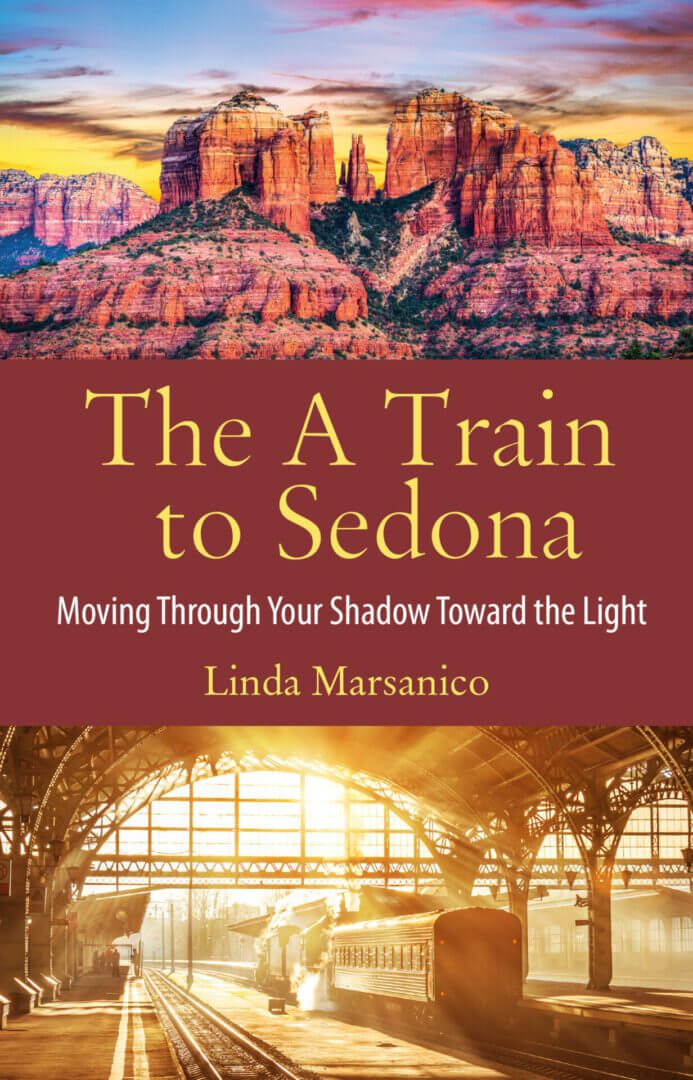Born into a self described “simple, strict loving Italian family” Linda Marsanico, a local (by way of Park Slope since the late 80s) New York author, has written a book that offers itself as a guide for reader’s spiritual journeys and awakenings. Marsanico, a mother of three, also holds a Ph.D. in Social Psychology and these days, has a coaching/clinical counseling practice. Her book strives to focus on the internal spiritual journey of mankind, as opposed to outwards markers of success such as wealth or status.
The book is titled as a nod to the deeply formative years Marsanico spent in Sedona, Arizona, working with a spiritual group, to find her way to a higher consciousness. (Marsanico had a home there for thirteen years.) As she writes, “My journey on the A train began on the local track, where it meandered for years. It took time for me to figure out what I needed and who could help. There was also a lot of work to do. I want to help you disembark the Local A to hop onto the Express A. Let’s go!” This light, encouraging and friendly tone, (with a New York specific train metaphor to go with it) pervades throughout the book. Readers get the sense that Marsanico truly has experienced profound spiritual transformations, and wants to share her acquired knowledge with a wider audience. Marsanico shows a vast awareness of many religions and practices, moving swiftly from concepts in Christianity to chakras with confidence.
Most of the chapters have titles such as “Understanding your true power and responsibility” or “Acceptance of self” and include an aphoristic, original quote from the author such as, “When we disavow feelings, these feelings are transmitted to the various body locations associated with the heart-to-brain-to-body-connective loop.” I found this structural choice to be a missed opportunity to look outward, as Marsanico has so clearly done over the course of her life: instead of offering the words of her beloved spiritual leaders, we are offered more wisdom from the author herself which began to read like a closed loop or someone having a dialogue with themselves.
As a person who grew up with multiple family members who meditate, parents, aunts and a sister who are mental health workers, along with a mother in law who specializes in somatic therapy and bodywork, not much of what I read was particularly revelatory to me as a reader. This being said, for someone who was new to Eastern ideas or interested in exploring meditation, Marsanico’s book can be seen as an entry point for the spiritually curious. In the age of Tik-Tok, with two devastatingly brutal wars unfolding, and no end in sight, we could all use some respite from the many ways we humans have removed ourselves from authentic meaning and purpose in the modern world.
Just under two hundred pages in length, The A Train to Sedona could easily be read by any regularly commuting New Yorker on a few longer trips. Although the writing is accessible, and Marsanico provides multiple personal anecdotes, I found myself looking for the connective tissue between all of her knowledge and lessons. From Kinesiology to Quantum Physics, there is no stone left unturned, which resulted in a scattered read. Two books come to mind as excellent examples of distilled psychology and religion: Viktor Frankl’s Man’s Search for Meaning and Rabbi Alan Lew’s This Is Real And You Are Completely Unprepared. Both books, although focused on the interior, bring in an all encompassing sense of humanity’s togetherness, which I found myself looking for within the pages of this book.
Marsanico provides brief one page “Reflections” which readers could use as a stopping point to reflect, and perhaps journal or take time to think about their own spiritual experiences. Additionally, there are several bulleted tools to offer readers such as “Developing the ego” or “Prayer.” Marsanico’s deep compassion and empathy for her fellow humans is evident in each page, and her genuine enthusiasm for psychology and spirituality is tangible.
If you’re looking to support a neighborhood author and learn something new, (might be good for you) and feels far removed from doom scrolling The New York Times or making calendar invites for zooms-I recommend you pause, reflect, and spend some time with Marsanico. You might just learn something worth keeping.
Marsanico, who also loves all superheroes can be found at: LindaMarsanico.com










